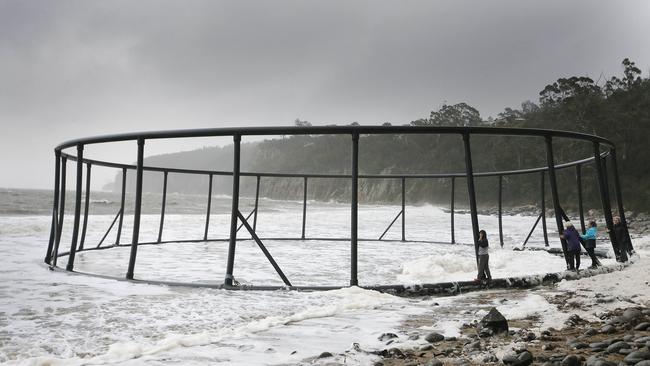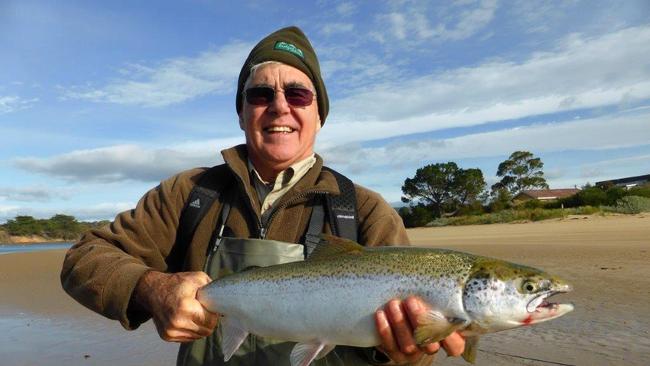Fish frenzy after Tassie’s great salmon escape
They’re usually $30 a kilo but fishermen are catching salmon for free after up to 25,000 fish escaped from pens in southern Tasmania.

A significant escape of Atlantic salmon - up to 250,000, according to unverified reports - has prompted concern about environmental impacts but fishermen are enjoying an extended free fish bonanza.
The valuable farmed fish escaped from pens ripped and torn from moorings in the state’s recent wild weather and are still being caught in significant numbers by local fishermen.
“I’ve only got 35 so far,” said retired commercial fisherman, now recreational fisher, David Dennison, of Hobart’s northern suburbs.
“I reckon they (salmon company Huon Aquaculture) done a service to the community: free fish that a lot of people can’t afford to buy at $30-odd a kilo in the shops.”
However, fishermen and environmentalists expressed concern about the large adult salmon potentially eating juvenile native fish and infecting wild trout with disease.

“There are significant impacts in terms of predation on wild fish that need to be considered, salmon being top-end carnivores,” said Environment Tasmania strategy director Laura Kelly.
“The research from overseas has debunked the myth that the salmon all just die or are caught by seals. It has shown that they can travel some kilometres and feed quite voraciously.”
There was concern within the fishing fraternity that some of the salmon may have a disease, pilchard orthomyxovirus (POMV), which could spread to wild trout and farmed salmon.
Ms Kelly said the incident highlighted a lack of transparency about such events, with details leaking out via fishermen while the government had been short on information.
“It’s an area where the government has completely failed on transparency,” she said. “There’s no public reporting requirement (re: escapes) even though this is a public interest issue.”
Huon Aquaculture would not say how many salmon had escaped. Sources suggested the figure was about 250,000, but the Greens claimed some reports put it as high as 600,000.
CEO Peter Bender said the fish escape had been “grossly exaggerated by the Greens to whip up a media frenzy for their own political gain”. “We will not be providing any further commentary,” he said.
The company confirmed it had reported fish losses from two pens after feed bins inside them punched through nets during the storm.
Most of the escaped fish are thought to have come from Huon’s fish farms near Bruny Island, struck by strong waves and gales during the storms.
The Tasmanian government played down the likely impact of the latest escape. “There is minimal disease risk associated with the escape — while POMV is a disease that can be found in farmed salmon, it is an endemic disease in pilchards and is already present in the wild,” a spokesman said.
“Research undertaken by the Institute for Marine and Antarctic Sciences also indicates escapee salmon have low survivorship in the wild and so will have no long term impact on the ecosystem.”
In January, Huon Aquaculture was hit by a mass escape of about 20,000 farmed kingfish from a trial lease near Port Stephens, NSW.




To join the conversation, please log in. Don't have an account? Register
Join the conversation, you are commenting as Logout